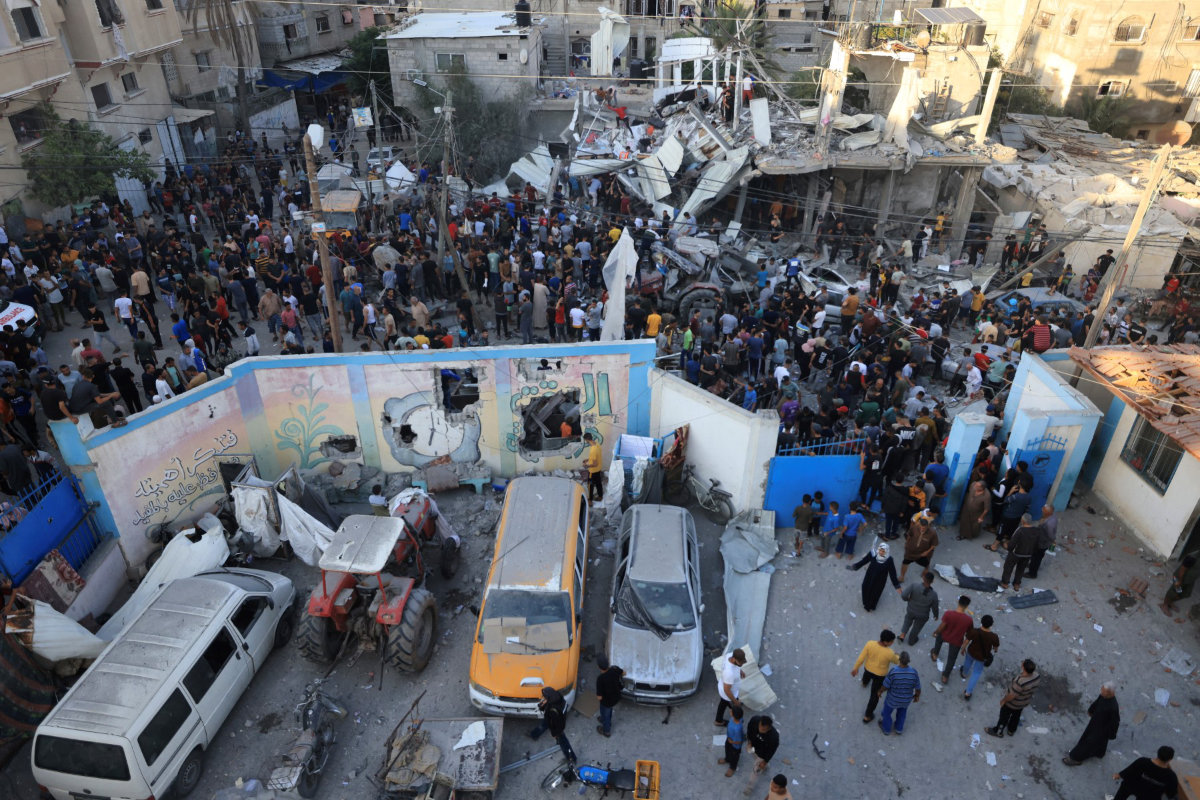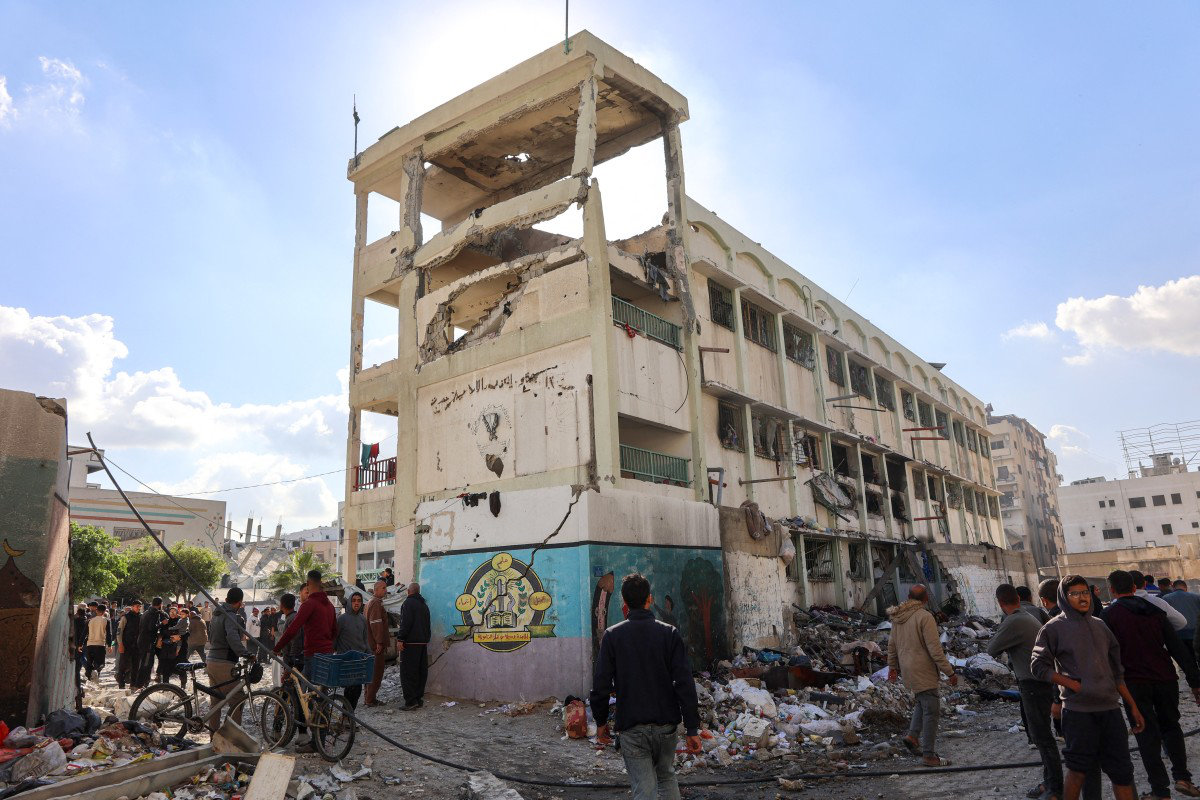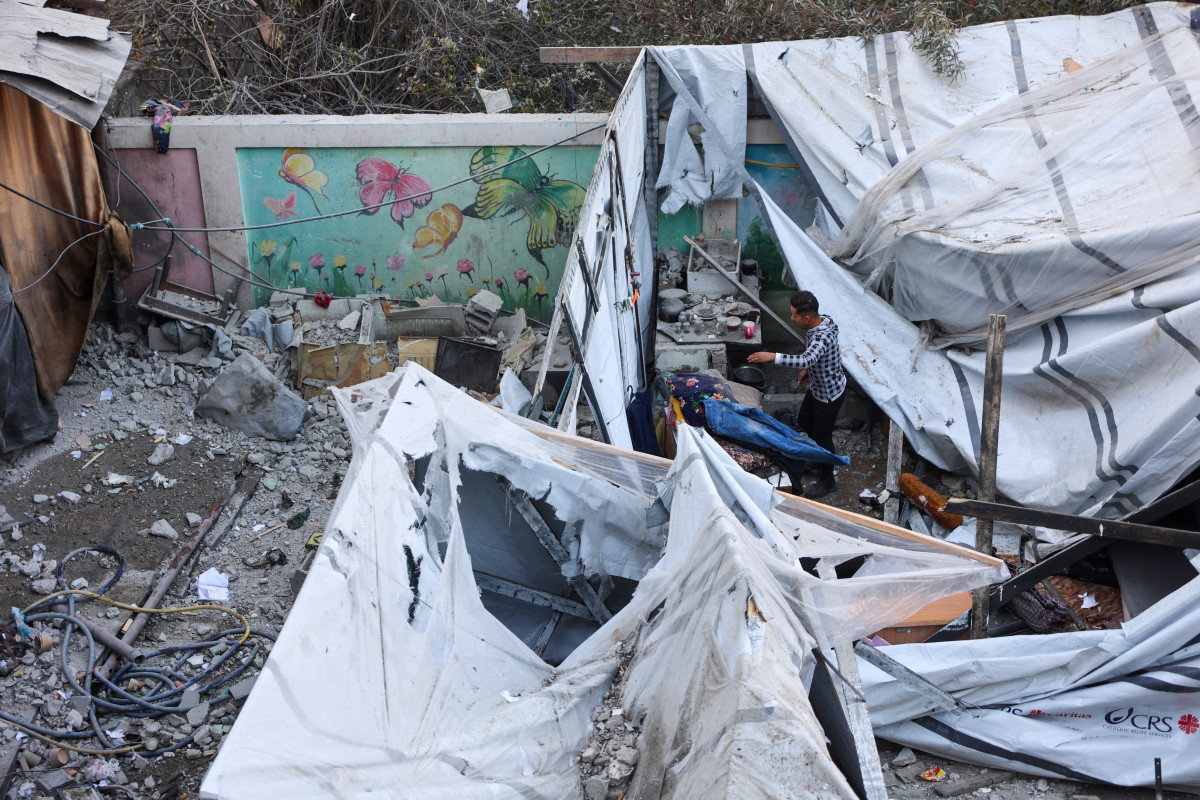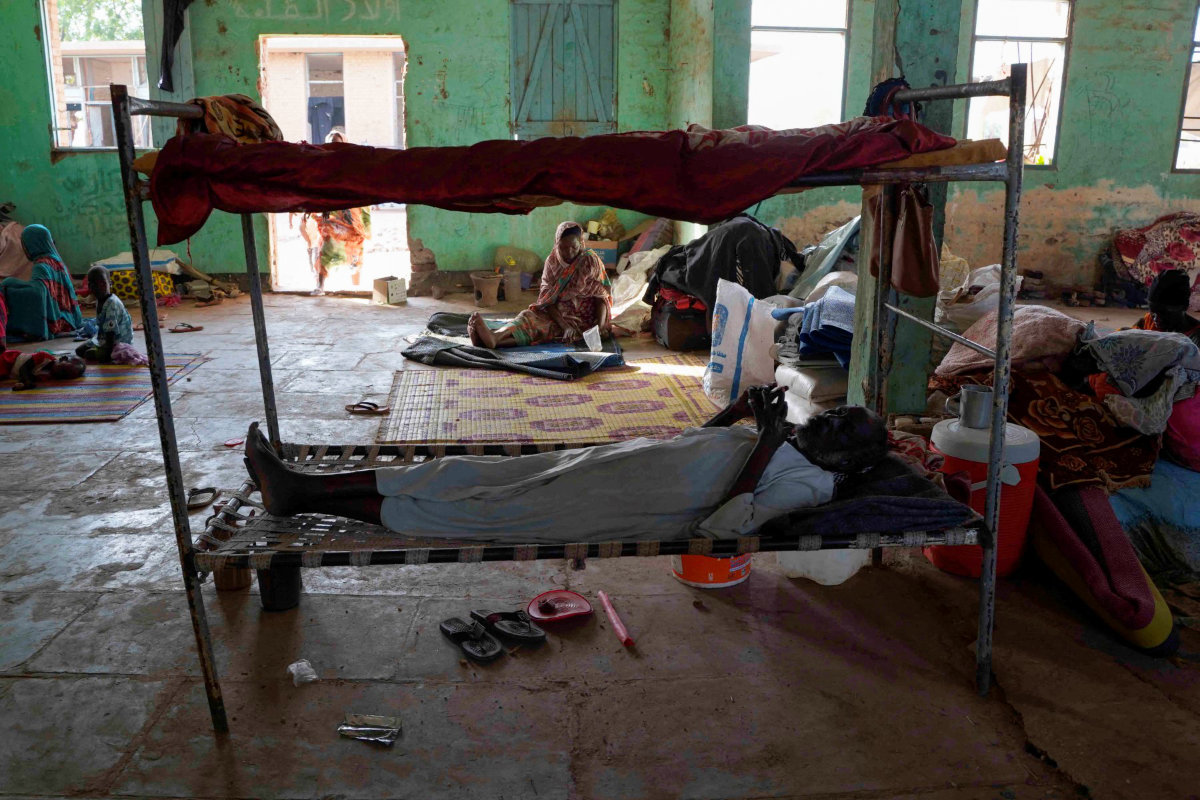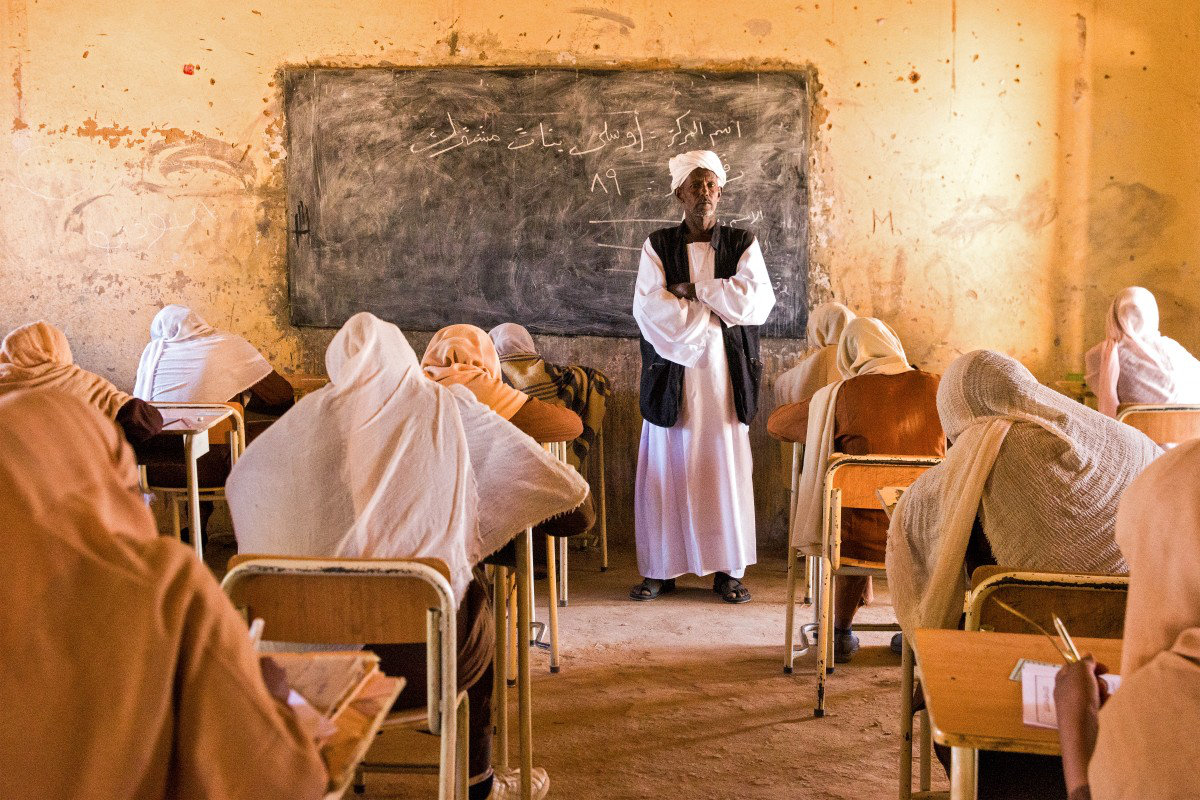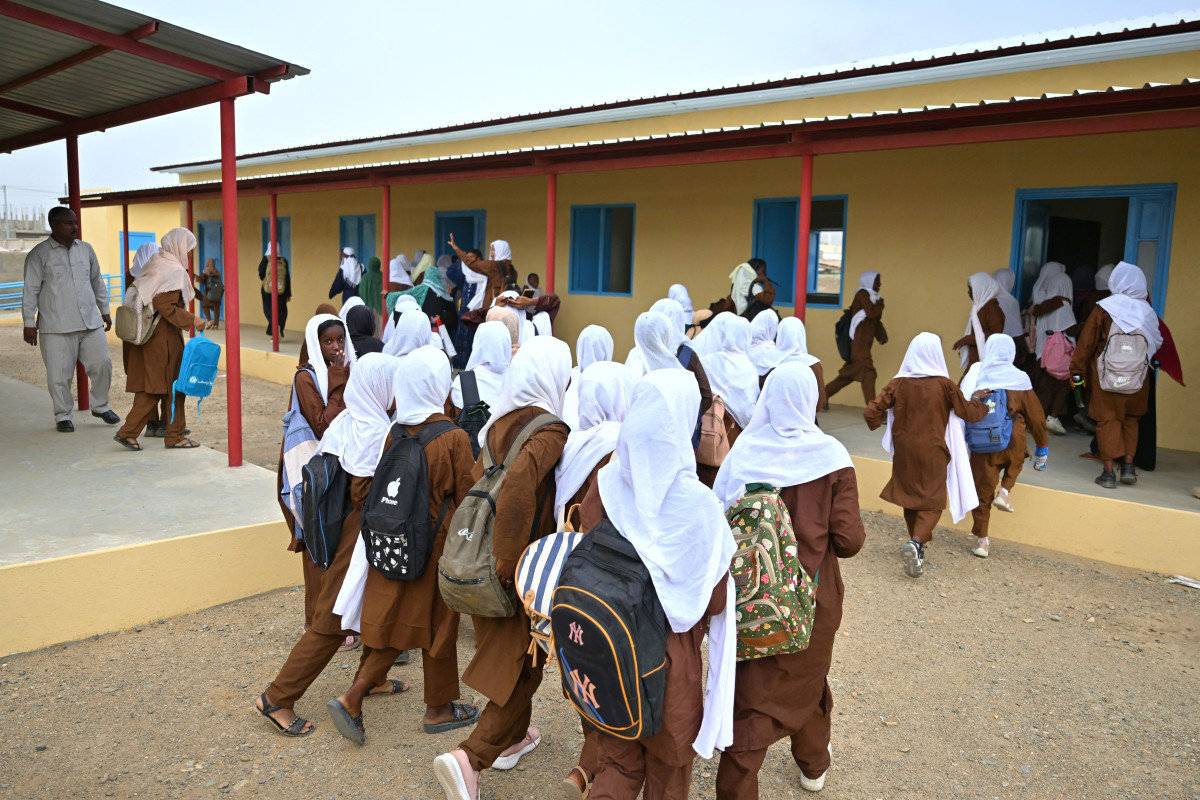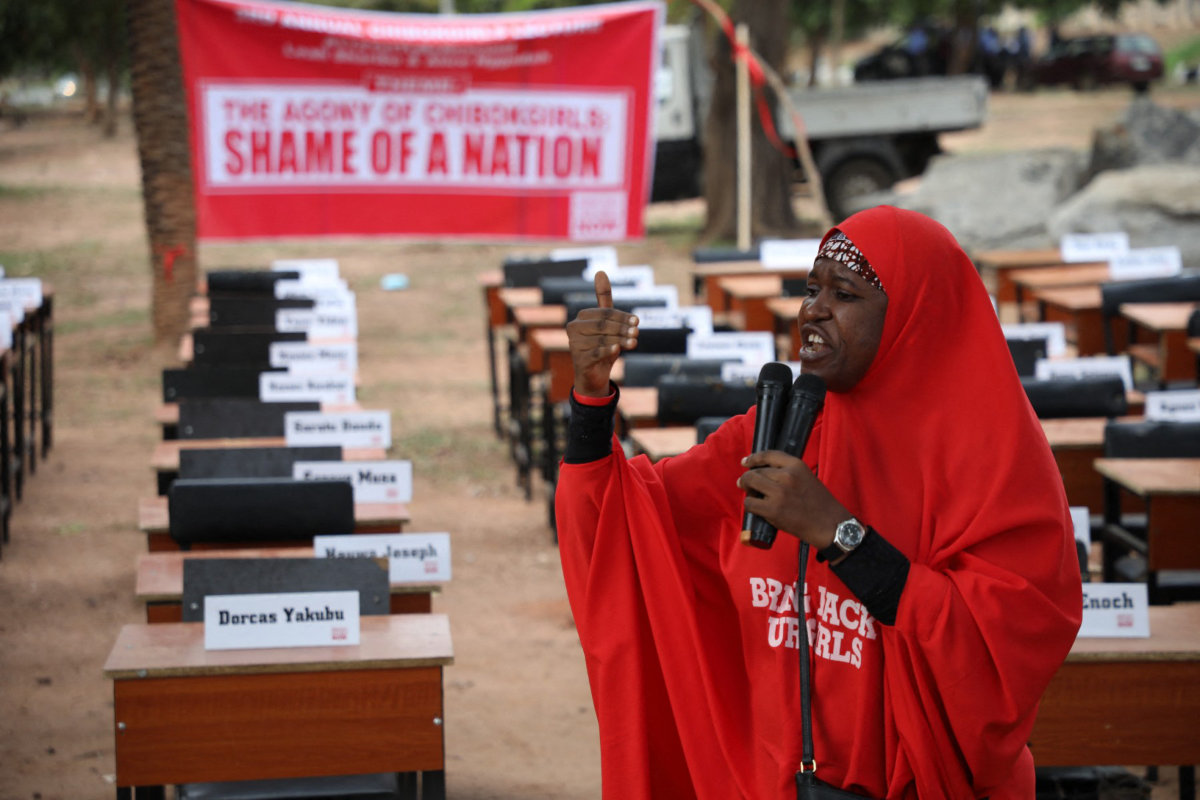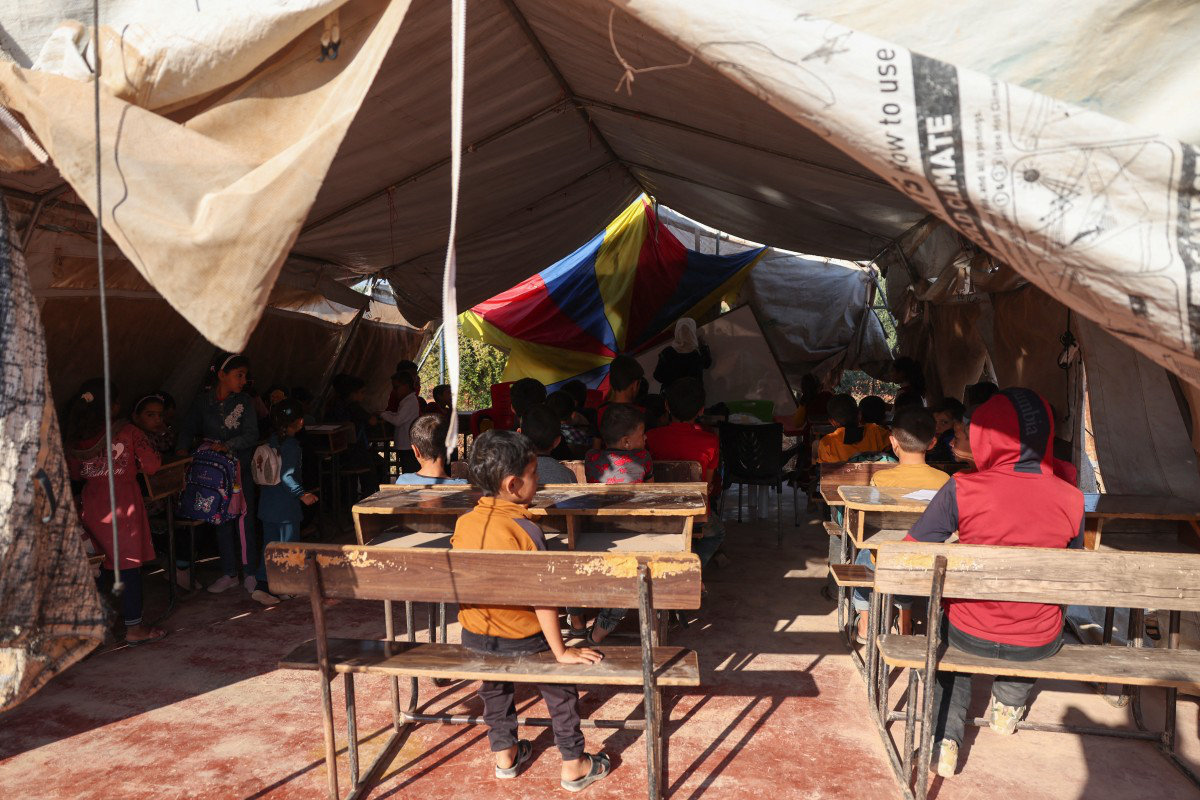MISSOURI: Reflecting a new Turkish naval doctrine, the phrase “blue homeland” is widely used in Turkey today.
Developed by former Turkish Rear Admiral Cem Gurdeniz, the blue homeland doctrine envisions Turkey ignoring the internationally recognized coastal rights of islands and laying exclusive claim to huge chunks of the Aegean and the Mediterranean Seas.
The new Turkish territorial waters doctrine would leave nothing for Greek Cypriots and encircle most of the Greek islands in the Aegean.
Newly discovered rich gas deposits in the eastern Mediterranean may lie at the heart of Ankara’s new naval doctrine, which pits Ankara against Greece, Cyprus, Egypt and Israel.
France has sent some of its warships to the Mediterranean to back Greece and the others, as a dangerous dance of gunboat diplomacy and naval drills is played out adjacent to gas explorations vessels in contested waters.
France and Greece are members of NATO as well, of course, but this has not prevented a barrage of bellicose exchanges between them and Turkey over maritime boundaries in the Mediterranean.
While Turkish President Recep Tayyip Erdogan has warned France “not to mess with Turkey,” French President Emmanuel Macron has said the Turks “only respect actions rather than words” and that he has “set red lines for Turkey.”
Things were not always so bad between Turkey and its NATO allies. For 50 years after its admission into NATO in 1952, Turkey played a key and model role in the alliance.
Bordering the Soviet Union’s Georgia and Armenia and controlling the Bosporus straits to the Black Sea, the Turks offered the alliance unparalleled benefits and the second largest land army in NATO.
In return, the Turks received NATO’s protection against the Russians, who had since the 19th century been Turkey’s greatest external threat, as well as top-of-the-line NATO military hardware and expertise.
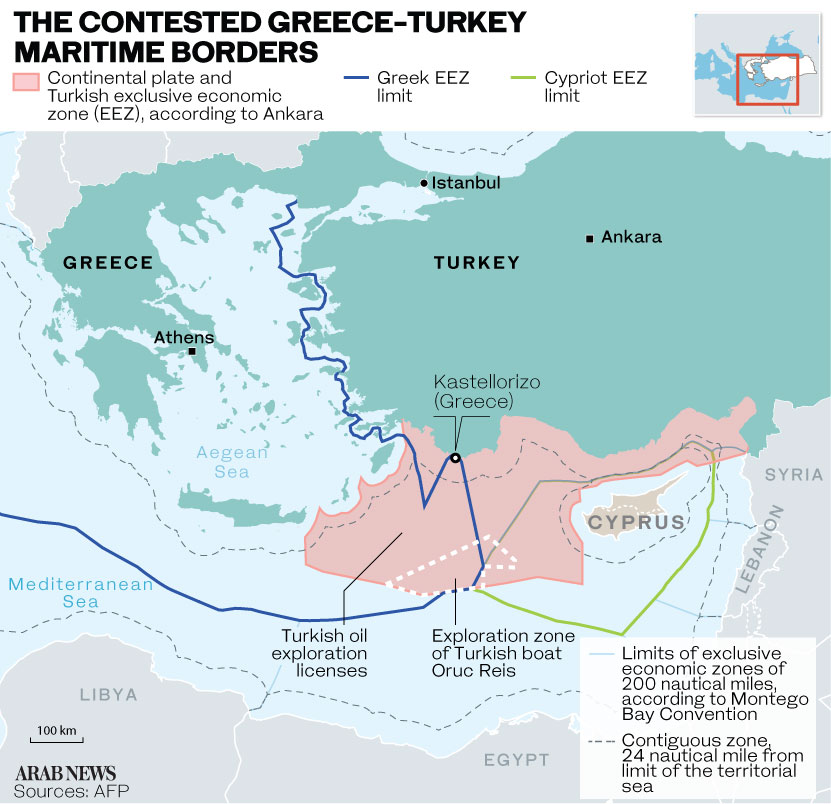
During those years a staunchly secular Turkey made significant sacrifices on behalf of the NATO alliance. A key NATO radar base was built in Kurecik in eastern Turkey, along with the very important shared NATO-Turkish airbases in Konya and Incirlik.
Turkey contributed troops to the war in the Korean Peninsula in the early 1950s, the 1991 Gulf War, NATO operations in the Balkans during the 1990s, and the 2002 war against the Taliban in Afghanistan.
In the case of the Gulf War, Turkey’s cooperation with its NATO allies cost the country a great deal economically.
Iraq had been a key Turkish trading partner and major source of oil imports, but Turkish Prime Minister Turgut Ozal fell in line with the US and other NATO allies in applying sanctions on Saddam Hussein and ending this trade.
Since joining NATO in 1952, Turkish military officers trained at military academies in the US and developed a close working relationship with their NATO counterparts in Brussels.
INNUMBERS
639k Size of Turkish armed forces.
11 Rank in Global Firepower military strength.
$19bn Annual military budget.
The only real glitch during those first 50 years of Turkey’s NATO membership occurred over Cyprus, culminating in the 1974 Turkish invasion of Cyprus. During that conflict, Turkey and fellow NATO member Greece almost went to war against one another.
The blame for the 1974 episode resides more with Greece, however, which had just lost its civilian government to a military coup. Greek nationalists in Athens were busily trying to upset the status quo in the Mediterranean, supporting enosis (Cypriot union with Greece) and the persecution of Cyprus’ Turkish minority.
At the time, Greece stood out as the liability in the NATO alliance, violating the terms of Cyprus’ founding treaty of independence and simultaneously not contributing very much to the NATO alliance.
The Greek and Turkish roles in NATO look very much reversed today. Since 2003, Turkey has increasingly become a liability and even a danger to other NATO members. The irredentism in the region now comes from Ankara rather than Athens.
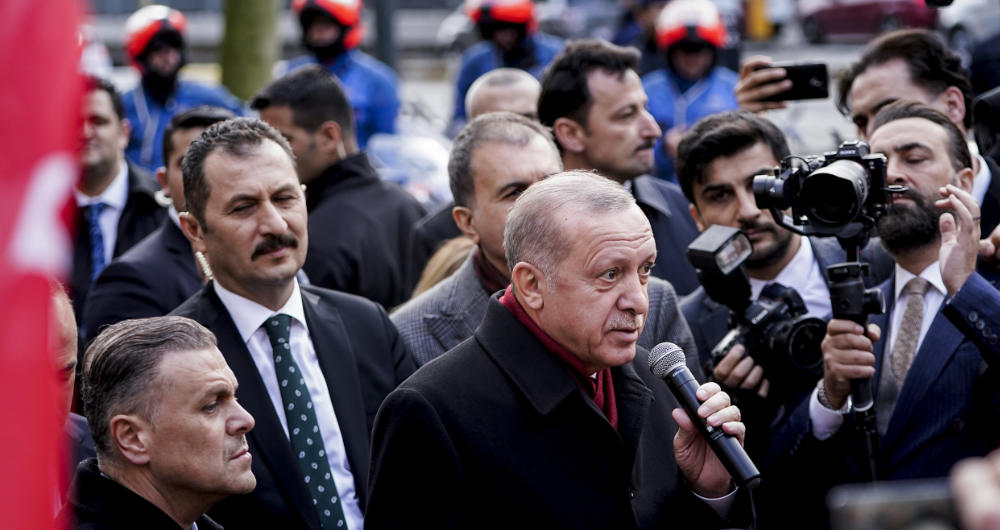
The catalogue of problems Erdogan’s Turkey has caused for NATO since 2002 is lengthy and complex. (AFP)
Whereas Turkey once pursued a prudent foreign policy and largely eschewed military adventurism in the region, the country under Erdogan’s leadership looks very different today.
Turkish forces occupy large swaths of northern Syria, engage in regular strikes in northern Iraq (despite Baghdad’s protests), lead thousands of mercenaries in Libya and advise and assist Muslim Brotherhood-linked politicians in Yemen.
In his speeches, Erdogan increasingly criticizes the 1923 Treaty of Lausanne and the borders it created, claiming that Mosul and the islands in the Aegean were stolen from Turkey.
Turkish media (which is overwhelmingly government-controlled these days) frequently show maps of Turkey that depict the Greek islands, all of Cyprus, parts of mainland Greece and Bulgaria, and most of northern Syria and Iraq as part of Turkey.
Besides Turkey’s dispute with Greece and France in the Mediterranean, Ankara and Paris back different sides in the civil wars in Libya and Syria, as well. France and Greece are not the only NATO allies at odds with Turkey.
While Washington, Paris and London backed Syrian Kurdish forces against the so-called Islamic State, or Daesh, Ankara stood accused of backing both Daesh and other radical Islamist groups in Syria.
Turkey’s invasions of northern Syria in 2018 and 2019 were not welcomed by its NATO allies and threatened to unravel the Kurdish-led offensive against Daesh.
The catalogue of problems Erdogan’s Turkey has caused for NATO since 2002 is lengthy and complex. Besides its support for Islamist and radical groups in Syria, Libya, Yemen and elsewhere, Turkey for a long time denied NATO permission to use shared airbases in Turkey against Daesh.
Erdogan repeatedly threatened to unleash waves of refugees on Europe if the EU did not pay Turkey to host the refugees and even, on two occasions, if the EU dared to criticize Turkish invasions of Syria.
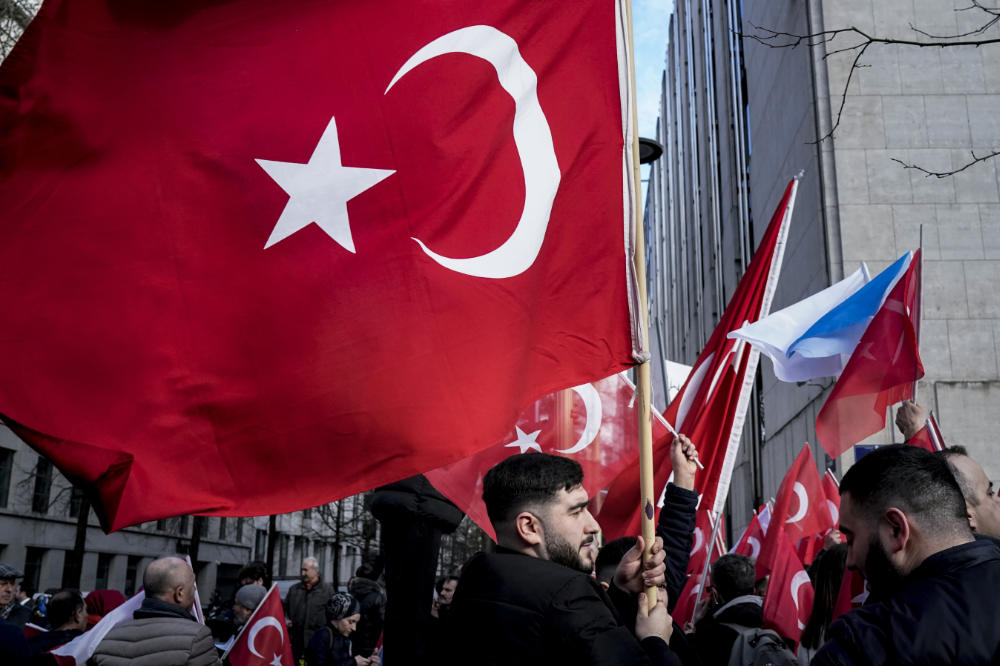
Turkey has become an unpredictable, dangerous force for instability in the region that seems very much at odds with the interests of its NATO. (AFP)
During the 2016 attempted coup in Turkey, the government accused the Americans of involvement in the coup attempt and even cut off electricity to the Incirlik base – where the US forces maintain several nuclear warheads. Erdogan’s government has repeatedly helped Iran to evade US sanctions.
In 2015 Turkey shot down a Russian warplane flying along its border with Syria, which threatened to drag NATO into an unwanted war with Moscow. Just a few years later, however, Ankara not only repaired relations with Moscow but went on to purchase advanced Russian military hardware, including the S400 air defense systems.
Since the Russian equipment, operating in conjunction with the new American F-35 fighter aircraft, could potentially expose critical vulnerabilities in the latter (allowing the Russians to learn the F-35’s weaknesses), the Americans were forced to remove Turkey from the F-35 fighter program.
The list goes on and could include Turkey’s slide into authoritarianism and Erdogan’s overt disdain for Europe, the Americans and the West in general, but the point is that Turkey has become an unpredictable, dangerous force for instability in the region that seems very much at odds with the interests of its NATO “allies.”
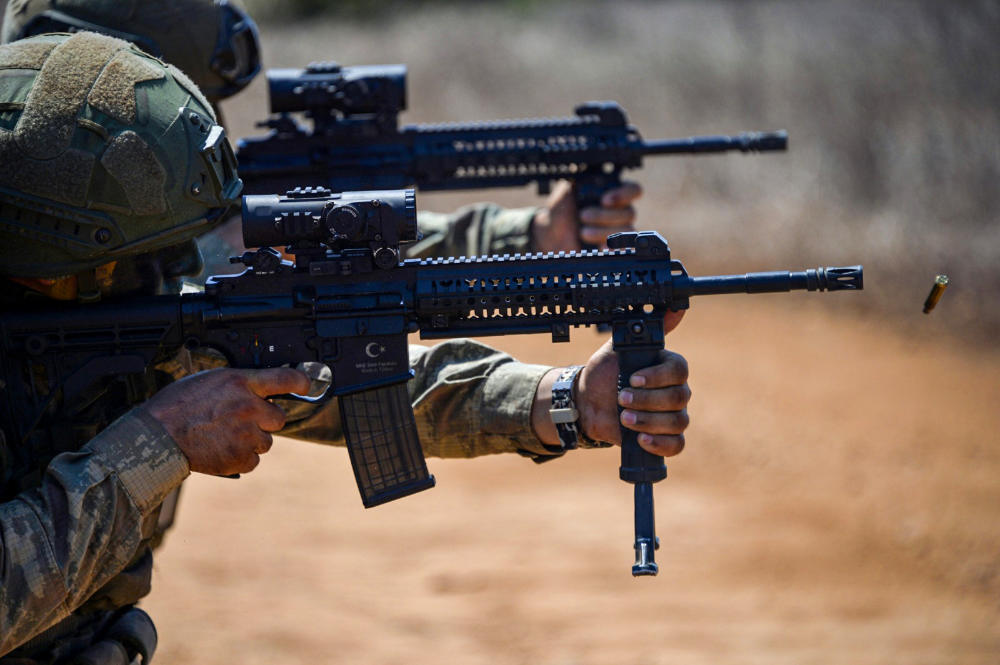
For 50 years after its admission into NATO in 1952, Turkey played a key and model role in the alliance. (AFP)
US officials began publicly questioning Turkey’s place in NATO several years ago. Dana Rohrabacher, the Republican chair of a House subcommittee on emerging threats, expressed serious doubts in 2016 when he said: “Ten years ago Turkey was a solid NATO ally and a staunch opponent of radical Islam and a friend of the United States, and today that’s all in question … Erdogan is purging pro-Western people throughout his country who are in positions of influence. He himself has become more aggressive in his Islamic beliefs, and there’s reason for us to be seriously concerned.”
The rupture between Erdogan and his NATO allies is so serious, in fact, that most of the Turkish military officers who trained with NATO in America and Belgium have come under suspicion in Ankara, with those abroad at the time of the 2016 attempted coup mostly requesting political asylum lest they be arrested in Turkey on trumped-up charges.
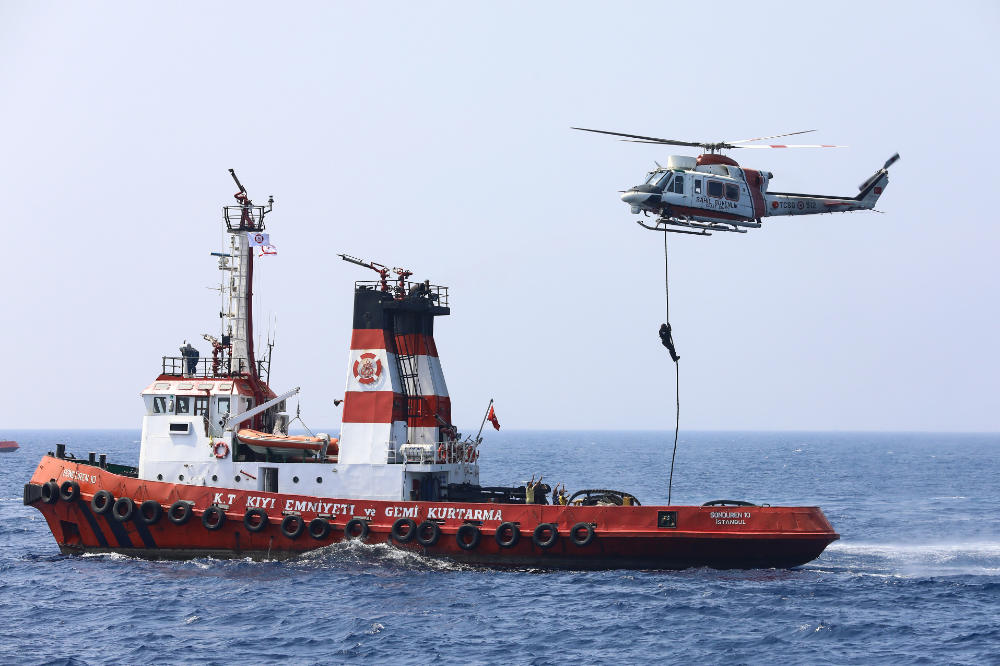
The blue homeland doctrine envisions Turkey ignoring the internationally recognized coastal rights of islands and laying exclusive claim to huge chunks of the Aegean and the Mediterranean Seas. (AFP)
In a world where Russian expansionism is no longer the threat it was in Soviet times, such developments put in question Turkey’s very place in NATO. There seems little doubt that today’s Turkey would not be admitted to the Western military alliance. The problem, however, is that with an increasingly hostile Turkey already a part of the alliance, NATO lacks any mechanism for expelling members.
American policymakers in particular also seem to reason that expelling Turkey from NATO would only exacerbate Ankara’s current tilt towards Russia and Islamist tendencies.
They instead hope to use NATO to smoothen out relations with the Turks, with NATO’s headquarters in Brussels this week serving as a venue for negotiations between Turkey and France and their dispute in the Mediterranean.
Only time will tell if it is right to treat Turkey as the ally the Americans and other NATO members wish they still had rather than the liability that Erdogan and his government have become.
• David Romano is Thomas G. Strong Professor of Middle East Politics at Missouri State University















